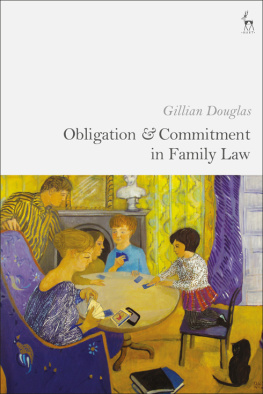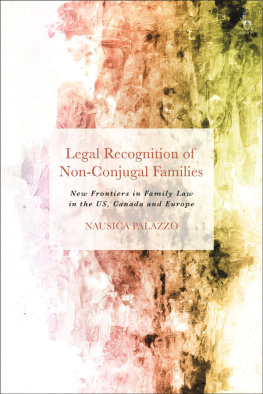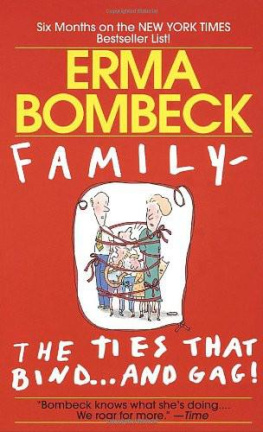Table of Contents

OBLIGATION AND COMMITMENT IN FAMILY LAW
A tension lies at the heart of family law. Expressed in the language of rights and duties, it seeks to impose enforceable obligations on individuals linked to each other by ties that are usually regarded as based on love or blood. Taking a contextual approach that draws on history, sociology and social policy as well as law and legal theory, this book examines the concept of obligation as it has been developed in family law and the difficulties the law has had in translating it from a theoretical and ideological concept into the basis of enforceable actions and duties. Increasingly, the idea of commitment has been offered as the key organising principle for the recognition of family relationships, often as a means of rebutting claims that family ties are becoming attenuated, but the meaning and scope of this concept have not been explored. The book traces how the notion of commitment is understood and how far it has come to be used as a rationale for imposing the core legal obligations which underpin care and caring within families.
Obligation and Commitment
in Family Law
Gillian Douglas

HART PUBLISHING
Bloomsbury Publishing Plc
Kemp House, Chawley Park, Cumnor Hill, Oxford, OX2 9PH, UK
HART PUBLISHING, the Hart/Stag logo, BLOOMSBURY and the Diana logo are
trademarks of Bloomsbury Publishing Plc
First published in Great Britain 2018
Copyright Gillian Douglas, 2018
Gillian Douglas has asserted her right under the Copyright, Designs and Patents Act 1988
to be identified as Author of this work.
All rights reserved. No part of this publication may be reproduced or transmitted in any
form or by any means, electronic or mechanical, including photocopying, recording,
or any information storage or retrieval system, without prior permission
in writing from the publishers.
While every care has been taken to ensure the accuracy of this work, no responsibility for
loss or damage occasioned to any person acting or refraining from action as a result
of any statement in it can be accepted by the authors, editors or publishers.
All UK Government legislation and other public sector information used in the work is
Crown Copyright . All House of Lords and House of Commons information used in
the work is Parliamentary Copyright . This information is reused under the terms
of the Open Government Licence v3.0 (http://www.nationalarchives.gov.uk/
doc/open-government-licence/version/3) except where otherwise stated.
All Eur-lex material used in the work is European Union,
http://eur-lex.europa.eu/, 19982018.
A catalogue record for this book is available from the British Library.
Library of Congress Cataloging-in-Publication data
Names: Douglas, Gillian, author.
Title: Obligation and commitment in family law / Gillian Douglas.
Description: Oxford [UK] ; New York : Hart Publishing, 2018. |
Includes bibliographical references and index.
Identifiers: LCCN 2017052960 (print) | LCCN 2017055287 (ebook) |
ISBN 9781782258537 (Epub) | ISBN 9781782258520 (hardback : alk. paper)
Subjects: LCSH: Domestic relationsGreat Britain. | Parent and child (Law)
Great Britain. | Family policyGreat Britain.
Classification: LCC KD750 (ebook) | LCC KD750 .D69 2018 (print) |
DDC 346.4101/5dc23
LC record available at https://lccn.loc.gov/2017052960
ISBN:HB:978-1-78225-852-0
ePDF:978-1-78225-854-4
ePub:978-1-78225-853-7
Typeset by Compuscript Ltd, Shannon
To find out more about our authors and books visit www.hartpublishing.co.uk.
Here you will find extracts, author information, details of forthcoming events
and the option to sign up for our newsletters.
The idea for this book had been in my mind for several years, but it was only when I was fortunate enough to be awarded a Leverhulme Trust Major Research Fellowship that I was able to devote the time to develop it properly. I am immensely grateful to the Trust for providing me with the opportunity to spend two years on a project exploring the notion of obligation and commitment in family law. This book is the major output from that project.
The motivation for my project was initially to look more closely at some of the earlier development of what might be called the modern family law era, which began when family issues shifted from being primarily dealt with through ecclesiastical and property law to a body of secular law distinctly concerned with the family. I was interested in the peculiar legal suit of restitution of conjugal rights, about which there seemed to be very little ever written. The idea of attempting to use law to coerce the performance of the non-financial obligations of marriage then led me to think further about how, and how far, the law has been used to determine the nature and content of family obligations more generally. The notion of family obligation assumed more significance when I was involved in an empirical study of peoples attitudes to the law of inheritance. The study was intended to provide information for the Law Commission in its review of the law of intestacy, a law that has barely altered since 1925. In asking people for their views on who should receive (shares of) their estate, it was clear that what Janet Finch and Jennifer Mason, in their earlier qualitative study of attitudes to inheritance (Negotiating Family Responsibilities, 1993), had described as a sense of obligation was highly important in determining their views of what would be right and fair. But it seemed that despite the enormous social changes in family formation and attitudes to intimacy and relationships that have taken place since the 1970s, never mind the 1920s or 1850s, people were still rather traditional when it came to matters of inheritance. We found that their inheritance familythe family they regarded as legitimate claimants on their estatewas generally the narrow nuclear family of partner (including a cohabiting partner) and children, with own (ie genetic) children taking priority over step-children.
It seemed to me that as identity has become more important in terms of social, cultural and political personhood, so the notion of relational identitywho is connected to whomhas become the focus of much of the energy of family law scholars who have examined and advocated the case for the legal recognition of a broader range of family relationships than this narrow nuclear family type. But somewhat less attention has sometimes been paid to considering what the legal consequences of such recognition would be, often because the drive for recognition has been motivated by a call, or an assumption, that this should deliver equality with the family relationships that are already recognised. Yet we all know from socio-legal and empirical insights into the working of family law that how the law is applied in practice may be far removed from how it appears on its face. And we also know that the law is communicated through a discourse imbued with underlying ideologies, attitudes and values that need to be unpacked and evaluated. So the aim of my project, and this book, has been to focus not on the recognition of relationships, but on the consequences of recognition as articulated through core obligations imposed by the law on family members towards each other.
As well as examining the concept of obligation, the other dimension of my project has been to explore the meaning of commitment in family law and family relationships. This is a concept that has become much more prevalent in both popular and legal discourse about the family and relationships in recent times, but as I explain in , its meaning has shifted from a term largely synonymous with burdenand obligationto one that embodies dedication and allegiance to a person or a relationship. I seek to show how this change in meaning is a reflection of the liberal view of intimate relationships as existing to provide emotional self-fulfilment for the autonomous individual, who should be free to move on from them if they fail to deliver such satisfaction. I note throughout how this conception of commitment is gendered, and how it also reflects the traditionally patriarchal stance of the law in the regulation and control of family relationships.











